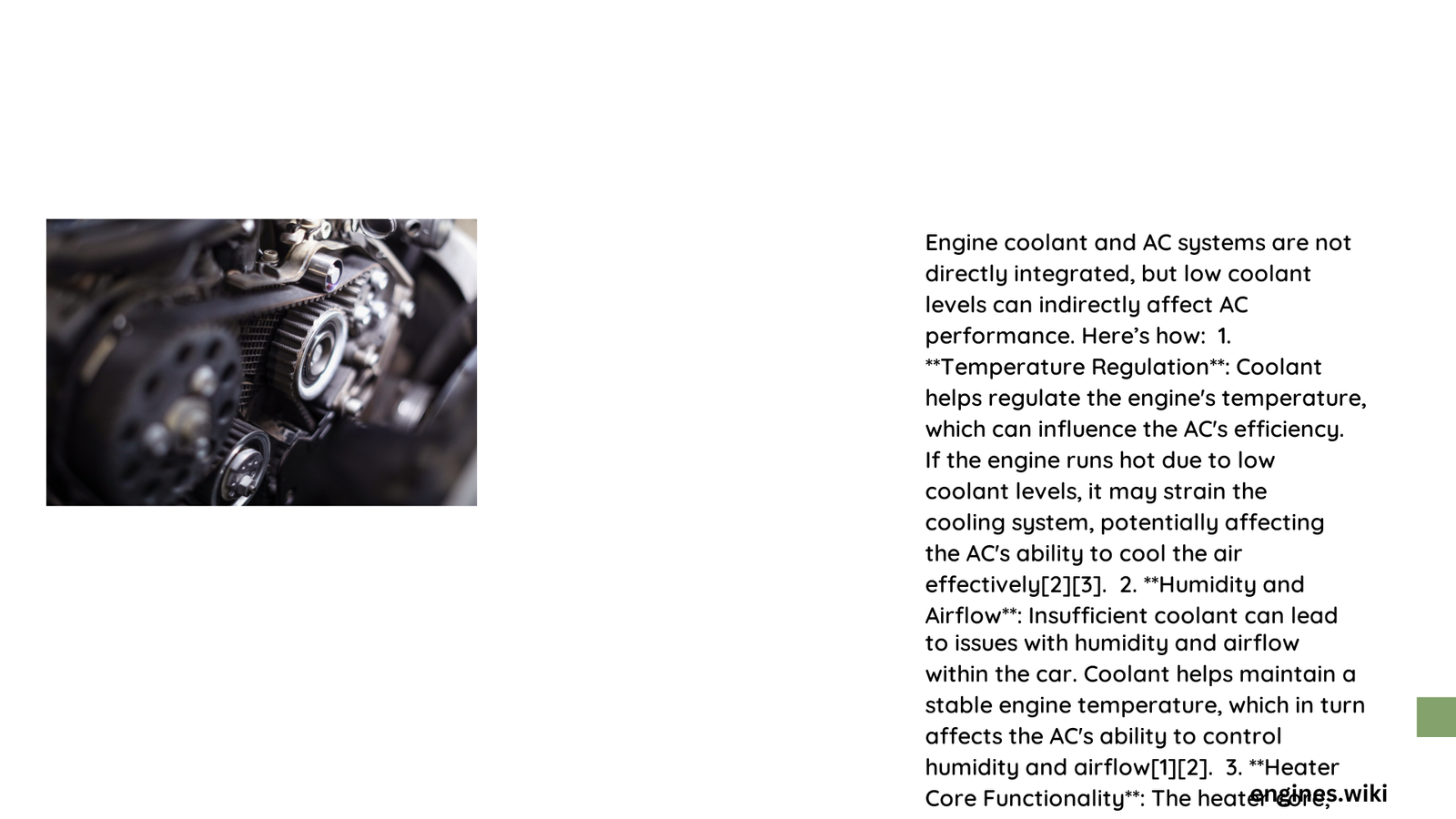Engine coolant and air conditioning systems share a complex, indirect relationship in vehicles. While they operate with different fluids and mechanisms, their performance is subtly interconnected through thermal management, shared components, and engine control unit (ECU) interactions. Understanding this relationship can help vehicle owners maintain optimal cooling performance and prevent potential system complications.\n\n## What Connects Engine Coolant and AC Systems?\n\nVehicle cooling systems are intricate networks where multiple thermal management components interact. The relationship between engine coolant and air conditioning is not direct but significantly influential. Here’s a comprehensive breakdown of their interconnected dynamics:\n\n### How Does Engine Temperature Impact AC Performance?\n\n- Thermal Transfer Mechanisms:
– AC condenser is typically located near the radiator
– Heat from engine coolant can affect condenser efficiency
– Higher engine temperatures reduce refrigerant cooling capacity\n\n### What Role Does ECU Play in System Interaction?\n\nThe Engine Control Unit acts as a critical mediator between cooling and air conditioning systems:\n\n| ECU Function | AC System Impact |\n|————-|——————|\n| Temperature Monitoring | Prevents AC compressor activation during overheating |\n| Load Management | Reduces compressor strain during high thermal stress |\n| Safety Protocol | Disables AC to protect engine from excessive heat |\n\n### Can Coolant Leaks Affect Air Conditioning?\n\nWhile coolant and refrigerant are distinct fluids, their systems are interconnected:\n\n1. Indirect Performance Reduction
– Coolant leaks cause engine temperature elevation
– Increased ambient heat near condenser
– Reduced AC system efficiency\n\n2. Shared Cooling Components
– Common radiator and condenser fans
– Integrated heat dissipation mechanisms
– Potential performance synchronization\n\n### What Happens During Extreme Temperature Scenarios?\n\nIn high-temperature environments, the interaction becomes more pronounced:\n\n- Engine coolant temperatures exceeding 220°F can trigger AC system protective mechanisms\n- ECU may temporarily disable air conditioning to prevent additional thermal stress\n- Refrigerant compression becomes less efficient under elevated temperatures\n\n## Technical Insights and Maintenance Recommendations\n\nTo maintain optimal vehicle cooling performance:\n\n- Regularly check engine coolant levels\n- Monitor coolant quality and condition\n- Inspect radiator and condenser for potential blockages\n- Ensure proper fan and ECU functionality\n\n### Conclusion: A Symbiotic Thermal Ecosystem\n\nThe relationship between engine coolant and AC systems is nuanced and interdependent. While not directly connected, they collaborate through thermal management strategies, shared components, and intelligent control mechanisms.\n\nPro Tip: Annual professional inspection can help identify potential thermal system interactions before they escalate into significant problems.\n\n### Reference:\n- SAE International Thermal Management Research\n- Society of Automotive Engineers Cooling Systems Study\n- Automotive Cooling Systems Technical Journal

